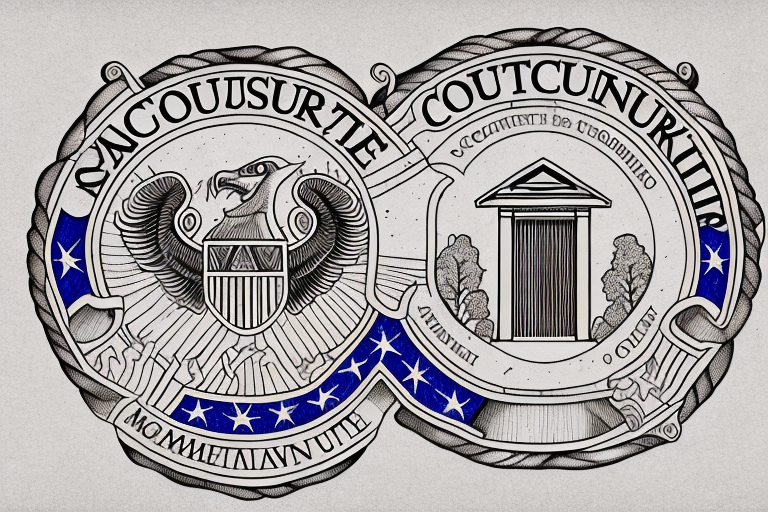Family Law: Understanding Its Role and Importance in Society
Family Law plays a vital role in society by addressing various legal issues that arise within the context of family relationships. It encompasses a wide range of topics, from marriage and divorce to child custody and support. Understanding the role and importance of Family Law is essential for ensuring the well-being and protection of individuals and families.
What is Family Law?
Family Law is a branch of law that deals with legal matters affecting familial relationships, including marriage, divorce, child custody, and adoption. In family law the best family lawyers establishes legal guidelines and procedures to facilitate the resolution of disputes and ensure the welfare of family members.
Family Law encompasses a wide range of legal rules and principles that govern family relationships. It is a dynamic field that evolves and adapts to societal changes and the needs of modern families. This branch of law plays a crucial role in shaping and protecting the fundamental unit of society – the family.
Definition and Scope of Family Law
Family Law covers a broad spectrum of legal issues that arise within the context of family relationships. It encompasses matters such as marriage, divorce, property division, spousal support, child custody, and visitation rights. These areas of law are designed to provide a framework for resolving disputes and ensuring fairness in family-related legal proceedings.
Moreover, Family Law extends its scope to address issues related to domestic violence, adoption, and reproductive rights. It recognizes the importance of protecting individuals from abusive relationships and providing a legal framework for the adoption process. Additionally, it acknowledges the rights of individuals to make informed decisions about their reproductive health and family planning.

Key Principles of Family Law
Family Law is guided by several key principles that prioritize the best interests of the family and its members. These principles serve as the foundation for legal decisions and aim to ensure fairness, justice, and the overall well-being of the family unit.
One of the fundamental principles of Family Law is the preservation of family unity. The law recognizes the importance of maintaining strong family bonds and encourages efforts to reconcile and resolve conflicts whenever possible. It promotes the idea that families should remain intact, fostering stability and emotional support for all members involved.
Another key principle is the protection of individual rights within the family unit. Family Law strives to safeguard the rights and interests of each family member, ensuring that their voices are heard and their needs are met. This includes protecting individuals from any form of abuse, whether it be physical, emotional, or financial.
Furthermore, Family Law emphasizes the prevention of harm, particularly when it comes to children. The welfare and well-being of children are of paramount importance in family-related legal matters. The law seeks to create a safe and nurturing environment for children, promoting their physical, emotional, and psychological development.
Lastly, Family Law places a strong emphasis on promoting the best interests of the child. In cases involving child custody, visitation rights, and other matters affecting children, the law strives to ensure that decisions are made with the child’s well-being as the primary consideration. This principle recognizes that children are vulnerable and deserve special protection and care.
In conclusion, Family Law is a multifaceted branch of law that addresses a wide range of legal issues within the context of familial relationships. It provides a legal framework for resolving disputes, protecting individual rights, and promoting the well-being of families and their members. As society continues to evolve, Family Law will continue to play a crucial role in adapting to the changing needs and dynamics of modern families.
The Role of Family Law in Society
Family Law plays a crucial role in society by providing legal mechanisms to protect the rights and interests of family members. It serves as a framework for resolving disputes, maintaining social order, and ensuring the overall well-being of individuals and families.
Protecting the Rights of Family Members
One of the primary functions of Family Law is to protect the rights of family members. It offers legal remedies and protections that aim to safeguard the interests of spouses, parents, and children. By establishing clear guidelines and procedures, it promotes fairness and equality within family relationships.
For example, Family Law ensures that spouses have the right to enter into a legally recognized marriage and enjoy the benefits and responsibilities that come with it. It also protects the rights of parents by establishing laws regarding child custody, visitation rights, and child support. These legal provisions ensure that both parents have the opportunity to maintain a meaningful relationship with their children and contribute to their upbringing.
Furthermore, Family Law recognizes the rights of children and provides measures to protect them from harm and neglect. It establishes laws against child abuse, abandonment, and exploitation, ensuring that children have a safe and nurturing environment to grow and develop.
Resolving Family Disputes
Family disputes can arise in various forms, such as divorce, child custody battles, and property disputes. Family Law provides a structured process for resolving these conflicts through negotiation, mediation, or litigation. By facilitating peaceful resolutions, it minimizes the emotional and financial burden on families.
In cases of divorce, Family Law sets out guidelines for the division of assets and liabilities, spousal support, and child support. These guidelines help ensure a fair and equitable distribution of resources, taking into account the contributions and needs of each family member.
Moreover, Family Law encourages alternative dispute resolution methods, such as mediation and collaborative law, to promote cooperation and reduce conflict. These approaches allow families to work together to find mutually beneficial solutions, rather than resorting to adversarial court battles.
Ensuring the Welfare of Children
Child welfare is a significant concern within the scope of Family Law. It seeks to ensure the physical, emotional, and psychological well-being of children involved in family disputes. Family Law establishes guidelines for determining child custody, visitation rights, and child support to promote stability and provide for the child’s needs.
Family Law recognizes the importance of maintaining strong and nurturing relationships between children and both parents. It aims to protect children from the negative effects of parental conflict and separation by establishing arrangements that prioritize their best interests.
Additionally, Family Law addresses issues related to child abuse and neglect. It provides mechanisms for reporting and investigating allegations of abuse, as well as establishing protective measures to safeguard children from harm. These measures include restraining orders, supervised visitation, and court-appointed guardianship.
In conclusion, Family Law serves as a vital framework for protecting the rights and interests of family members, resolving disputes, and ensuring the welfare of children. Its comprehensive provisions and procedures contribute to the stability and well-being of individuals and families, promoting a harmonious and just society.

The Importance of Family Law
Family Law is of paramount importance for the functioning of society. It plays a crucial role in maintaining social order, safeguarding vulnerable family members, and facilitating fair divorce proceedings.
Maintaining Social Order
Family Law sets clear guidelines and regulations that govern familial relationships. It promotes stability, predictability, and accountability by establishing legal frameworks for marriage, divorce, property division, and other matters. By maintaining social order, Family Law contributes to the overall well-being and harmony of society.
Furthermore, Family Law ensures that individuals are aware of their rights and responsibilities within the family unit. It provides a legal structure that helps prevent disputes and conflicts from escalating, thus reducing the strain on the judicial system. The establishment of legal frameworks also encourages individuals to enter into marriage with a greater sense of security and confidence, knowing that their rights are protected under the law.
Safeguarding Vulnerable Family Members
Family Law places a significant emphasis on protecting vulnerable family members, such as children, victims of domestic violence, and the elderly. It offers legal remedies, including restraining orders and protective orders, to shield them from harm and ensure their safety.
In cases of child custody, Family Law ensures that the best interests of the child are prioritized. It provides guidelines for determining custody arrangements, visitation rights, and child support, aiming to create a stable and nurturing environment for children involved in parental separations.
Moreover, Family Law recognizes the unique vulnerabilities faced by victims of domestic violence. It offers legal protections and support services to those who have experienced abuse within the family unit, empowering them to seek justice and break free from harmful situations.

Facilitating Fair Divorce Proceedings
Divorce can be emotionally challenging and financially complex. Family Law provides a fair and equitable process for spouses to dissolve their marriage. It addresses issues such as property division, spousal support, and child custody, ensuring that the proceedings are conducted in a just and reasonable manner.
Family Law recognizes that each divorce case is unique and requires individualized attention. It allows for the consideration of various factors, such as the length of the marriage, the financial resources of each spouse, and the well-being of any children involved, to determine a fair division of assets and liabilities.
Additionally, Family Law encourages alternative dispute resolution methods, such as mediation and collaborative law, to facilitate amicable settlements and minimize the emotional toll on the parties involved. These processes promote open communication and cooperation, allowing couples to reach mutually beneficial agreements outside of traditional courtroom litigation.
By providing a framework for fair divorce proceedings, Family Law aims to mitigate the negative consequences of marital breakdown, allowing individuals to move forward with their lives while preserving their dignity and well-being.
Key Areas of Family Law
Family Law encompasses several key areas that are crucial for understanding its role and impact on society. These areas include marriage and divorce, child custody and support, and domestic abuse and protection orders.
Marriage and Divorce
Family Law governs the legal aspects of marriage and divorce. It sets the requirements for a valid marriage and establishes procedures and regulations for divorce, annulment, and legal separation. By providing legal guidelines, it aims to protect the rights and interests of both parties involved.
Child Custody and Support
Child custody and support are vital issues addressed by Family Law. It determines the allocation of custodial rights and responsibilities between parents and establishes guidelines for financial support to ensure the well-being of children. Family Law strives to create arrangements that prioritize the child’s best interests and maintain parental involvement.
Domestic Abuse and Protection Orders
Family Law addresses the grave issue of domestic abuse. It offers legal protection to victims through the establishment of protection orders. These orders prohibit the abuser from contacting or approaching the victim, ensuring the safety and security of individuals facing domestic violence.
In conclusion, Family Law plays a fundamental role in society by addressing legal matters within family relationships. It aims to protect the rights of family members, resolve disputes, and ensure the welfare of children. Recognizing the importance and scope of Family Law is essential for creating a just and harmonious society where individuals and families can thrive.
See also: Choosing the Right Commercial Lawyer for Your Business: What to Consider

